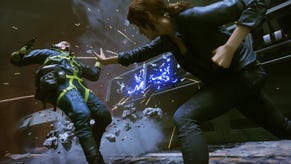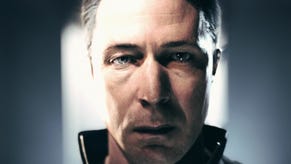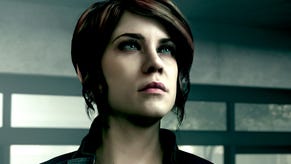After an hour playing it, Control seems extraordinary
Cooped up.
I think maybe the number one rule about anything made by David Lynch is that you should never write about anything made by David Lynch. I'm going to break that rule - just quickly I promise - to say there was a moment that felt straight out of the Lynchian playbook in the Control demo I played at E3, and it was wonderful.
Dropped into things a few hours into the game, one of the first tasks I had in my slice of Control was to find a janitor. I tracked him down and found him in a little back room (there is a wonderful simplicity to tracking things down in Control - in fact it's much of what the game is - but more on that in a moment).
To get here I fought through people and monsters, red reality-distorting fields of light in a windowless, brutalist government building, ripping up walls and floors and office desk chairs as I went. Chaos, by way of Ikea. And after that I opened a door and he just stood there. A janitor, with a mop and a bucket.
There's a quick cutscene and - forgive me for describing camera movements but please just hang in there - the camera glides in on him slowly, from just below eye-line, an imperious hero shot of a dishevelled, 60-something-year-old man in a boiler suit. We start talking and it looks like a bog standard video game cutscene - agonisingly bland, over-the-shoulder angles and all - only I don't think it is. The janitor speaks with a thick Scandinavian accent, slowly. Almost too slowly. He says something I don't completely understand and we cut back to an ultra close-up of Jesse's face (you play as Jesse Faden, the new Director at this Bureau-gone-wrong) and all you can see is her eyes. She's not saying anything.
"Maybe it's just some extra video game cutscene jank", I'm thinking - you know the kind of awkward-pausing, blank-eyed delivery stuff I'm talking about - but it's not. After an uncomfortable amount of time watching Jesse's face twitch I hear a little whisper of her internal thought ("it's not jank! This is a thing"). Then back to the janitor. Back and forth. It's not the accent that's making him hard to understand; he's genuinely not making any sense. I think he thinks Jesse is his... assistant? He's giving us a side quest? To clean up some rubbish by a furnace? More awkward pauses and cuts and twitching stares (goodness me the facial animation is good, by the way), and the janitor still just leaning on his mop as Jesse goes through various, voiceless ways of expressing "seriously what the fuck?", like she's frozen in time in front of this bizarre little man. All this to a background hum of - you guessed it Lynch fans! - something oddly reverberating. The Janitor From Another Place, in his supply cupboard Black Lodge.
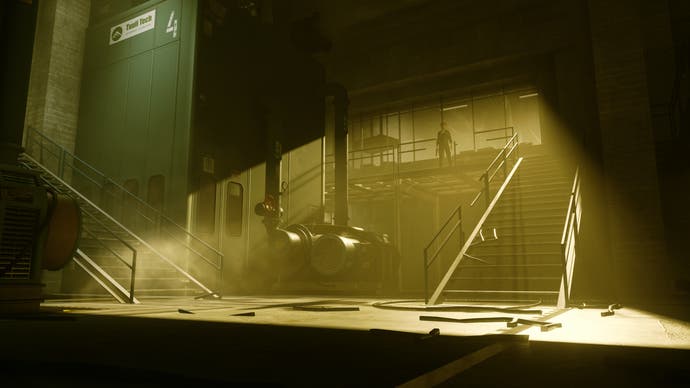
This encounter was more than enough to convince me to sack off the main quest for a bit, and follow the tangent. I went hunting for the room he talked about so I could burn some rubbish - and so we get to the actual getting-around of Control.
Control has a map - although I was encouraged to avoid using it by someone from Remedy, curiously. It's very standard Metroidvania fare, all different-sized rooms connected by tunnels and pathways to bigger or smaller ones, different routes unlocked or totally missed by accident, different ways of reaching a destination just nudged onto you, by some flickering red light or spooky gurn from around a bend. Navigating is just a case of looking at the location name of where you want to go in the top left corner, which is usually something beautifully bureaucratic like "Central Processing Management", and going there. If you've discovered it already somehow, it'll be named somewhere on the map, and you've just got to get to it. If it's not, you've got to wander around the fog-of-warred spots until you do.
I have no idea why that stood out to me so much. It seems so stupidly simple, but in Control it feels absolutely deliberate (in fact everything feels deliberate, which I wish I could say more often). I am in bureaucratic-name-place X and I need to get over there, to bureaucratic-name-place Y, and I do so by taking the second left, through a squiggly thing, into a big rectangle. It's just using a map! That's all this is! I'm sure it's something clever, to do with making me actively think about where I'm going, as I'm going, probably. To keep me present and conscious as it throws visual weirdness and aural imbalance at me as I go. But explaining it as such, putting a tangible border around something as inscrutable as a feeling, like the one you get from claustrophically drifting around Control's magnificent, suffocating architecture, feels wrong. Whyever it works, it just does.
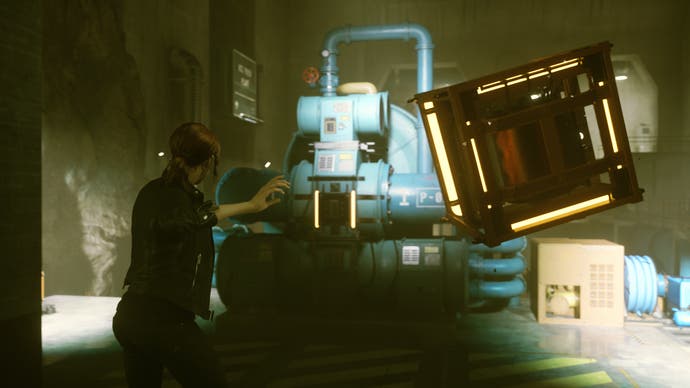
Along the way there is combat. It's fantastic. Control controls impeccably, my simple early-game options of shooting, shooting a different version of my gun, or picking up things - any things - and chucking them at enemies feels sublime. It is totally intuitive, almost mystically so; the chunk of drywall, or concrete floor, or filing cabinet that gets picked up always the exact one that I wanted, just by way of body language and intent. You can pick up and lob about three things in quick succession before your picking-up-and-chucking gauge depletes. It recharges after a second or two on its own, so it's just a natural cooldown timer, in a sense, and your gun actually works the same way: a nicely minimalist little row of dots around your reticule are bullets, and when you run out you just need to wait a moment (it's a magic gun, obviously, and the gunfeel is magic too).
It's all in service of a kind of rhythm: you lob a PC monitor at one grunt, pop a few headshots into one of the charging, destruct-on-death monsters nearby, punt a brick at another, cycle back to your gun and maybe switch it to the kind of shotgun version, if you're feeling fancy; repeat. There's a skill tree to unlock more, as well as mods found - or built from resources - scattered about in containers in little side rooms and hidden nooks, and basic options to upgrade health or thing-throwing damage or number of things you can fling, and the like. It felt like the systems were deep, sure, but also immaculately streamlined. All that's there is what's needed.
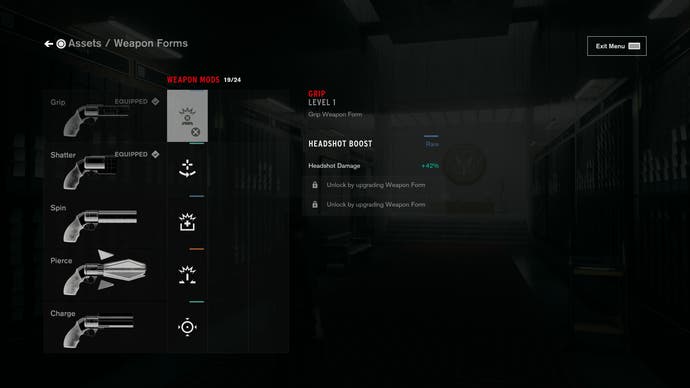
After certain spots of combat, you can claim a control point. I'm not actually sure what these do, or the narrative reason for them, but the points could be interacted with afterwards and seem to serve as places you can fast travel from, or rest a moment at, to tinker with and upgrade some unlocked skills. They feel like welcome respite, even if you're hardly in constant conflict. The environment of Control is so incredibly stifling it's like the little endorphine rush of unlocking something is necessary in order to breathe.
Back to Janitor-from-another-place's quest: I found the furnace. It lines the entire back wall of a fairly vast, warehouse-y room, and it's just a bit too large, and a bit too loud, I think? In fact so are a lot of things in Control. It's all oddly out of balance. From time to time, I found, you'll sink into passively doing your thing and then just catch yourself - "that is an abnormally large furnace, actually" - and realise it's all just a bit off. Why is there a jumbo furnace, roaring like I'm looking at the Sun? Looking straight into reactor four at Chernobyl? Into hell? Why, after a lot of time spent fighting my way here and subsequently looking around, is the task to just lob some scattered barrels of toxic slime into it? Clearly, Control likes a little environmental puzzle, and seems to want you to stop and scratch your head - but even when you're not actively solving things it's like there's a puzzle still rumbling, underneath. A sense that this world, unlike the worlds of so many contemporaries, is not already solved.
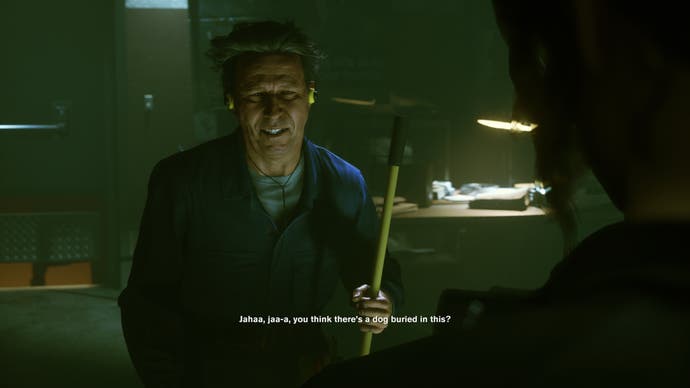
Anyway, I solved that and nothing happened - of course it didn't. I went back to the main quest. More excellent combat, more brain-teasing stuff-chucking environmental puzzles, more of the macabre that I won't ruin, or really be able to explain if I tried. Soon enough I ended up in some other, inexplicable non-place when I was told I had to wrap things up. And that's Control - and now I'm left feeling there's no way for me to write it all down without it sounding ridiculous. I am aware of how ridiculous it reads back even now - and this, along with just the general insufferability of reading someone as they try, is exactly why you don't write about David Lynch. It is an aura. An offness, that you have to feel in order to know. I don't know how to describe it or how to do it justice but Control has it coming out the wazoo, oddness oozing out every time it looks like edging towards big-budget action-game normalcy. After just an hour, I am pretty sure this game is special. In fact, after just an hour I'm pretty sure it's more than that: it's a leap forward, in sheer creativity and vision, from any other game like it, and after just an hour I'm in awe.
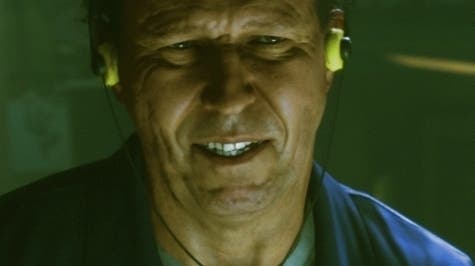


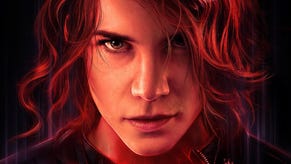
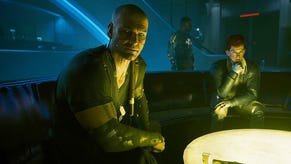
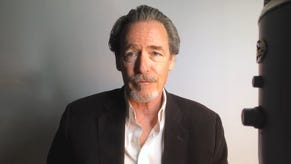
.jpg?width=291&height=164&fit=crop&quality=80&format=jpg&auto=webp)
